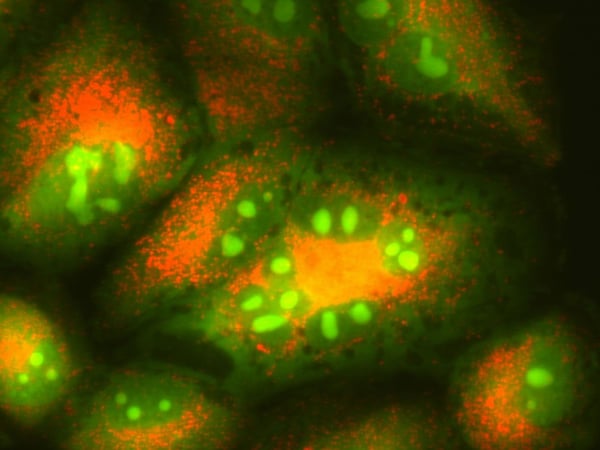Targeting Metastatic Lung Cancer
The U.S. Food and Drug Administration adds a fifth molecularly targeted therapeutic option for the treatment of ALK-positive lung cancer.

The U.S. Food and Drug Administration (FDA) recently approved the molecularly targeted therapeutic lorlatinib (Lorbrena) for treating certain patients with metastatic non-small cell lung cancer (NSCLC).
Lorlatinib is intended for treating patients who have ALK-positive metastatic NSCLC that has progressed despite treatment with the ALK-targeted therapeutic crizotinib (Xalkori) and at least one other ALK-targeted therapeutic for metastatic disease; treatment with alectinib (Alecensa) as the first ALK-targeted therapeutic for metastatic disease; or treatment with ceritinib (Zykadia) as the first ALK-targeted therapeutic for metastatic disease.
NSCLC will account for up to 85 percent of the 228,150 new cases of lung cancers
expected to be diagnosed in the United States in 2019. Advances in cancer genetics research have shown that mutations in the ALK gene promote the development and growth of 3 to 7 percent of NSCLCs, making ALK a good therapeutic target for this group of NSCLCs.
Lorlatinib is the fifth anticancer therapeutic that targets ALK to be approved by the FDA. The first was crizotinib, which was approved in August 2011. This was followed by ceritinib, which was approved in April 2014; alectinib, which was approved in December 2015; and brigatinib (Alunbrig), which was approved in April 2017.
Until May 2017, crizotinib was the standard first treatment for patients with ALK-positive metastatic NSCLC. The other ALK-targeted therapeutics were approved only for use after a patient’s cancer had either progressed despite treatment with crizotinib or had failed to respond to crizotinib in the first place. Since then, ceritinib and alectinib have been approved as initial treatments for patients with ALK-positive metastatic NSCLC.
One reason that multiple ALK-targeted therapeutics have been developed and approved is that most patients whose ALK-positive metastatic NSCLC responds to an ALK-targeted therapeutic ultimately have disease progression because the tumors develop resistance to the therapeutic. In many cases, this resistance emerges because NSCLC cells acquire additional ALK mutations.
As discussed in a recent paper in the AACR journal Cancer Discovery, the second-generation ALK-targeted therapeutics — ceritinib, alectinib, and brigatinib — can inhibit most of the clinically observed ALK mutations that drive resistance to crizotinib. The third-generation ALK-targeted therapeutic — lorlatinib — can inhibit most of the clinically observed ALK mutations that drive resistance to the second-generation ALK-targeted therapeutics.
The approval of lorlatinib was based on results from a phase II clinical trial, some of which were published recently in Lancet Oncology. The results showed that 48 percent of 215 patients with ALK-positive metastatic NSCLC who had previously been treated with one or more ALK-targeted therapeutic responded to treatment with lorlatinib. Overall, 4 percent of the patients had complete tumor shrinkage and 41 percent had partial tumor shrinkage. The researchers estimated that the median response duration was 12.5 months.
The FDA approval was rendered on Nov. 2, 2018.
